
Black Lives Matter (Toronto) Janaya Khan
The Toronto chapter of Black Lives Matter (BLM) was founded by Janaya Khan and Sandy Hudson— two of the leading voices in the global fight demanding social change, justice, and equality to Black people in their community and around the world.
In 2014, Khan and Hudson organized a solidarity rally in outside Toronto’s U.S. Consulate after the acquittal of George Zimmerman in the shooting death of 17-year-old Trayvon Martin in Florida, the shooting death of 18-year-old Michael Brown in Missouri, and the police killing of 33 year-old Jermaine Carby in Brampton, Ontario. Thousands of people showed up to protest these injustices. The strength and courage of these protesters inspired Khan and Hudson to start the BLM movement in Toronto.
Born and raised in Toronto, Janaya Khan is a social activist, organizer, and public speaker. Khan currently resides in Los Angeles, California and is a Program Director for Color of Change. In organizing BLM Toronto, Khan said they wanted people to know that Black Lives Matter is “more than a saying and a slogan, but it is also a prayer. It’s a belief system. It’s an invitation, and it’s a declaration. However, more than that, it’s a reminder that it not yet too late to be the person you always thought you could be.” Khan was recently named one of the Out100—Out Magazine’s “most influential LGBTQ+ names in music, fashion, culture, advocacy, and more.”
(References: Meet Janaya Khan the pioneering rights activist and organiser for BLM and Colour of Change, Death ignites grassroots black lives matter Toronto movement, Facebook, SandyHudson.com)

Black Lives Matter (Toronto) Sandy Hudson
The Toronto chapter of Black Lives Matter (BLM) was founded by Janaya Khan and Sandy Hudson— two of the leading voices in the global fight demanding social change, justice, and equality to Black people in their community and around the world.
In 2014, Khan and Hudson organized a solidarity rally in outside Toronto’s U.S. Consulate after the acquittal of George Zimmerman in the shooting death of 17-year-old Trayvon Martin in Florida, the shooting death of 18-year-old Michael Brown in Missouri, and the police killing of 33 year-old Jermaine Carby in Brampton, Ontario. Thousands of people showed up to protest these injustices. The strength and courage of these protesters inspired Khan and Hudson to start the BLM movement in Toronto.
Sandy Hudson is an activist, writer, community organizer, and public intellectual from Toronto. Hudson also co-founded the Black Legal Action Centre, a non-profit legal aid clinic that delivers free legal services to low-and-no-income Black Ontarians. Hudson’s journey to co-founding the BLM Toronto movement and becoming an advocate for those affected by anti-Black racism was a learned role through her experience with organizing in her community. Growing up in a mostly white school in Brampton, she had to learn how to disrupt the system effectively. Today, through her writings and community work, she speaks on how activism and the urgent push for change is one of the most important aspects of the BLM movement.
(References: Meet Janaya Khan the pioneering rights activist and organiser for BLM and Colour of Change, Death ignites grassroots black lives matter Toronto movement, Facebook, SandyHudson.com)
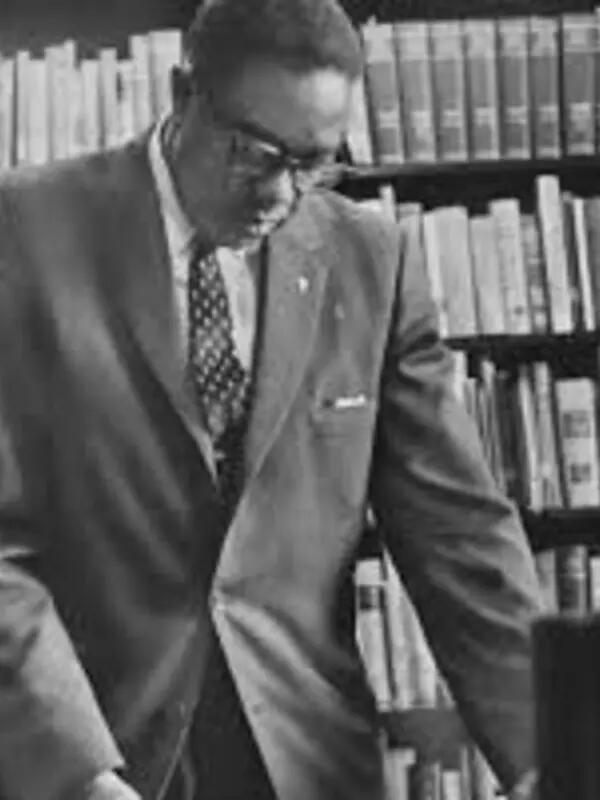
Leonard Braithwaite
Leonard Braithwaite was a lawyer and politician. Born in 1923, he was raised in Toronto’s Kensington Market by his West Indian parents. He graduated Osgoode Law School in 1958, beginning his political career a few years later. In 1963, he was elected to the Ontario Legislature as a Liberal Member of Provincial Parliament, becoming the first Black Canadian elected to a provincial legislature.
During his time in politics, Braithwaite spoke out against racial segregation in Ontario schools. He helped to revoke a section of the Ontario Separate Schools Act that had allowed for racial segregation in public schools. He was also a champion of women and called for the admission of female legislative pages in 1966.
In his honour, Winston Churchill Collegiate Institute developed the first Africentric program offered at the secondary school level in Canada. The Leonard Braithwaite Program delivers a rich and diverse educational experience on diverse perspectives, experiences, and history of the people of the African diaspora.
Braithwaite was appointed to the Order of Canada in 1997 and the Order of Ontario in 2004.
(Leonard Braithwaite references: The Canadian Encyclopedia and Ontario’s first black MPP, Leonard Braithwaite, dies at 88)
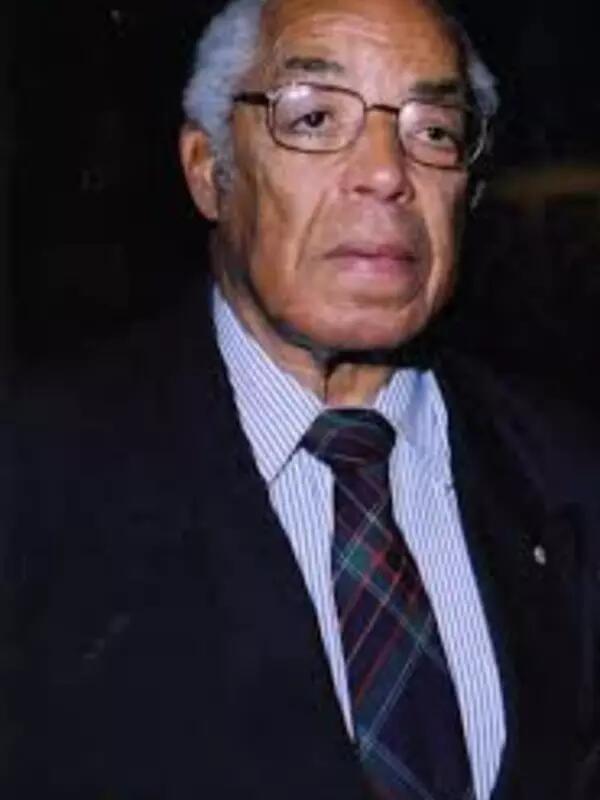
Bromley Armstrong
Bromley Armstrong was a trade unionist, civil rights leader, community organizer and activist. Originally from Kingston, Jamaica, Armstrong came to Canada in 1947 at the age of 19 and settled in Toronto.
Armstrong was a known figure in the fight to improve civil rights and human rights in Ontario. For more than six decades, Armstrong dedicated his life to the trade union movement and the struggle against those who were disadvantaged and discriminated. He helped to generate civic and government support for racial equality and advocated for human rights reforms in public policy. His efforts and achievements as a leader and activist earned him the Order of Ontario and the Order of Canada.
Armstrong also served on the Ontario Human Rights Commission, Ontario Advisory Council on Multiculturism and was also the first Black person to be appointed to the Ontario Labour Relations Board.
Canadian Labour Council (CLC) President Hassan Yussuff remembers Armstrong as a trailblazer and outstanding leader in his community and for all of Canada. “Armstrong was a pioneer for so much that we take for granted in how Canada has changed,” said Yussuff, who is the first person of colour to lead the CLC. “He represented a generation of people who didn’t simply accept the challenges and difficulties they faced. His legacy is that Canada today is a better place because of his courage and conviction to fight for others to make this country more inclusive.”
Armstrong will always be remembered as a social justice activist and someone who fought for the rights of all. AMAPCEO proudly sponsors the Toronto York Regional Labour Council’s Awards Gala in Armstrong’s name, annually.
(Bromley Armstrong history referenced from “Canada is ‘a better place today’ because of Bromley Armstrong” and The Canadian Encyclopedia)
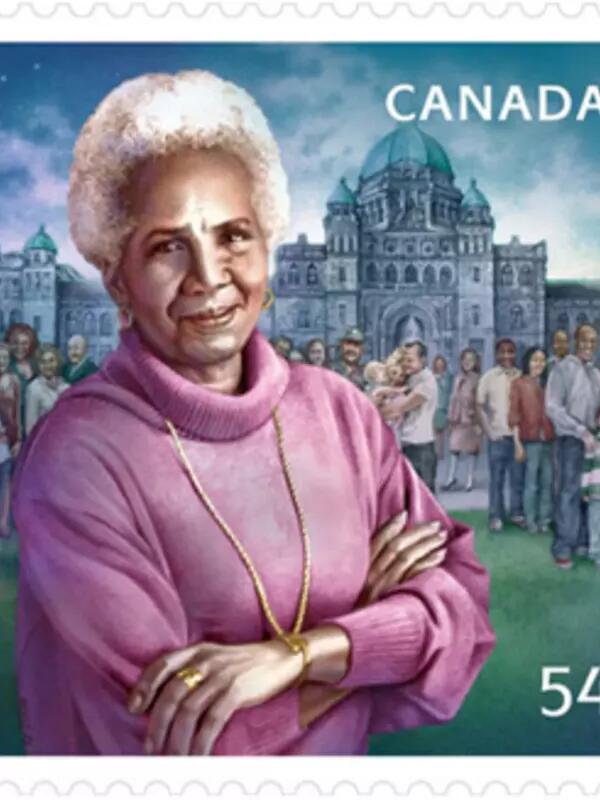
Rosemary Brown
“We must open the doors and we must see to it they remain open, so that others can pass through.” -Rosemary Brown
Born in 1930 in Jamaica, Rosemary Brown came to Canada in 1951 and dedicated her life to promoting equality and human rights.
Brown initially pursued a career in social work, but her involvement in two social groups—the British Columbia Association for the Advancement of Coloured People, and the Voice of Women—led her to enter politics. In 1972, she joined the New Democratic Party and won her seat in the riding of Vancouver-Burrard later that year, becoming the first Black woman to sit in the Legislative Assembly of British Columbia. In 1975, she was the first Black woman to run for the leadership of the federal NDP.
In addition to her work in politics, Brown served as Executive Director and later, as special Ambassador of MATCH International Centre (now Equality Fund), a non-governmental organization working with women in developing nations. In 1993, Brown was appointed Chief Commissioner of the Ontario Human Rights Commission.
Following her retirement from politics, Brown was a professor of women’s studies at Simon Fraser University. Brown was also an accomplished writer and wrote Being Brown: A Very Public Life in 1989.
Brown’s dedication to her community won her many honours, including the Order of British Columbia, the Order of Canada, the Ontario Black Achievement Award, and appeared on a commemorative stamp from Canada Post in 2009.
(Rosemary Brown history referenced from the BC Black History Awareness Society.)
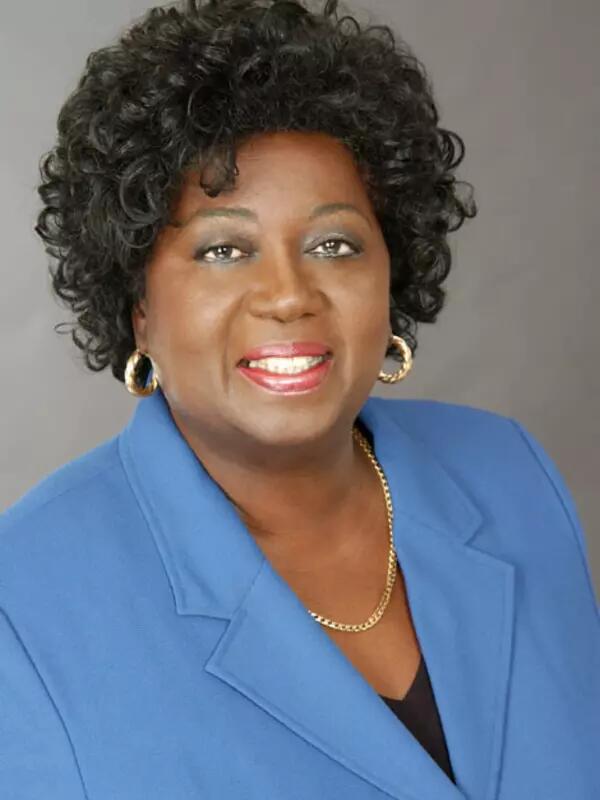
Jean Augustine
After a career advocating for social justice as the principal of an elementary school and as a volunteer with the Hospital for Sick Children and the Metro Toronto Housing Authority, Jean Augustine became the first Black woman elected as a Canadian Member of Parliament in 1993. Augustine held many roles during her time as an MP, including Parliamentary Secretary to the Prime Minister, Secretary of State for Multiculturalism and the Status of Women and Deputy Speaker of the House of Commons.
Augustine was the author of a motion—which passed unanimously—recognizing February as Black History Month in Canada.
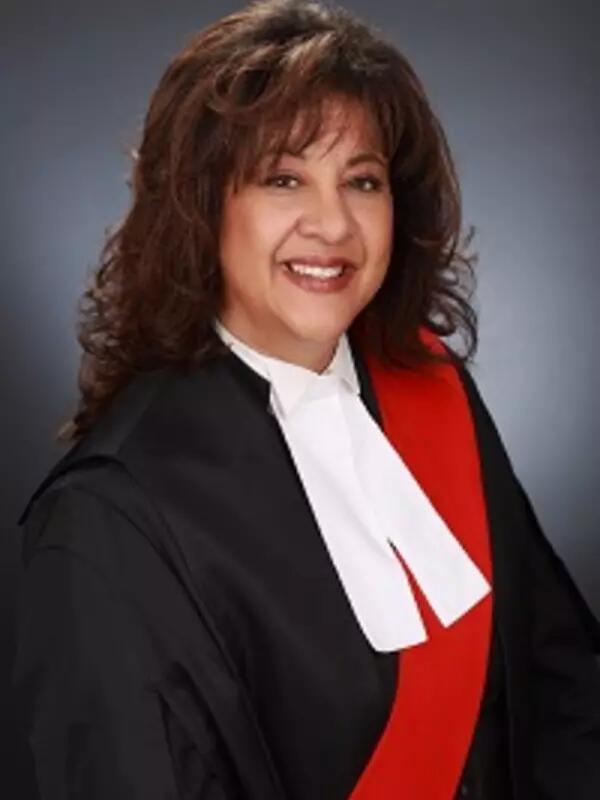
Madam Justice Micheline Rawlins
The Honorable Madam Justice Rawlins is a lawyer and judge in Ontario. Having studied law at the University of Windsor, she was called to the Bar in 1982 and went on to become the first Black woman appointed to the Ontario Court of Justice in 1992.
On top of this great achievement, she also went on to receive many awards, including the African Canadian Achievement Award (1997), The National Congress of Black Women Award for Outstanding Contribution to Women, Law and to Canada (2002), and Windsor Woman of the Year (2004).
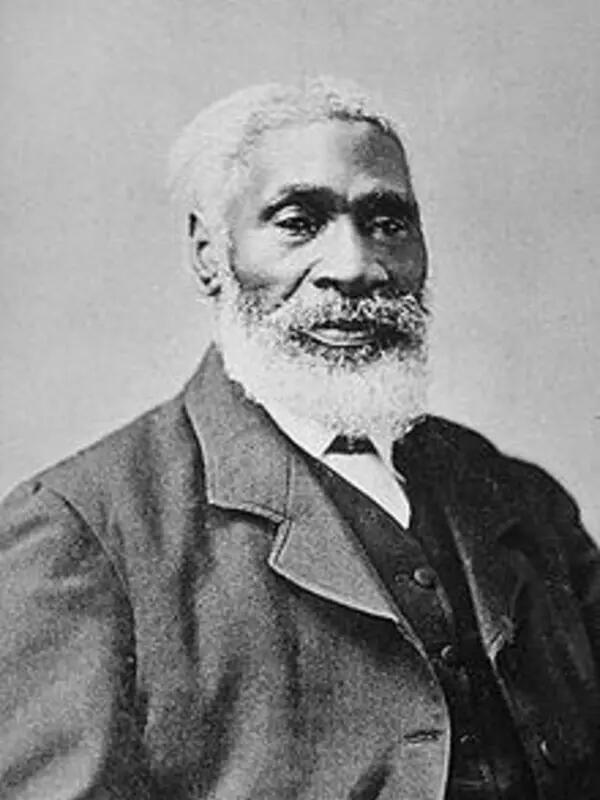
Reverend Josiah Henson
Originally from Charles County, Maryland, Reverend Josiah Henson fled to Dresden, Ontario in 1830 to escape slavery.
Upon his arrival in Canada, Henson worked as a farm labourer and a lay preacher in the Waterloo area. In 1836, Henson and his wife founded the Black settlement of Dawn, which was a place for refugees from enslavement to gain the education and skills necessary for self-sufficiency to live and succeed in their community.
He also helped found Uncle Tom's Cabin Historic Site in 1841. The museum preserves the settlement where Henson and his wife lived. Harriet Beecher Stowe, author of Uncle Tom's Cabin, stated that his memoirs had provided “conceptions and incidents” for her novel.
Due to his support of literacy and education for blacks, and helping raise international awareness of Canada as a haven for refugees from slavery, Henson was an important leader in the growing Black community in Canada.
Reverend Josiah Henson history referenced from Ontario Heritage Trust and Parks Canada Directory of Federal Heritage Designations)
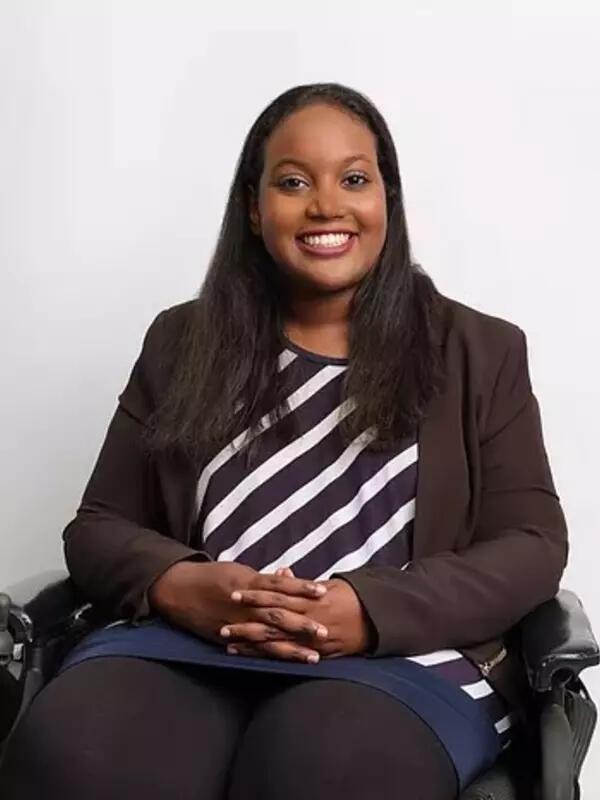
Sara Jama
Sarah Jama is a community organizer from Hamilton and co-founder of the Disability Justice Network of Ontario (DNJO). As a child born with cerebral palsy, Sarah did not want her diagnosis to put limitations on her life.
The idea to start DNJO came while Sarah and her friend were organizing for a variety of issues on McMaster’s Hamilton campus, but saw that the perspectives of people with disabilities were being left out. The agency’s vision is to “teach young people with disabilities to be able to challenge institutions and community spaces that exist and say ‘hey’, this is what we need to be able to participate as our full selves.”
Sarah is also an avid keynote speaker and lends her learned and lived experiences in community engagement, disability justice, and activism to such organizations as the Elementary Teachers Federation of Ontario (ETFO), the Broadbent Institute, the Ontario Federation of Labour, and many others.
In her spare time, she acts as a consultant, and is currently the Senior Program Coordinator at the Hamilton Centre for Civic Inclusion where she is building leadership curriculum to teach young racialized individuals how to organize.
Watch Sarah talk about her work on TVO’s The Agenda with Steve Paikin »
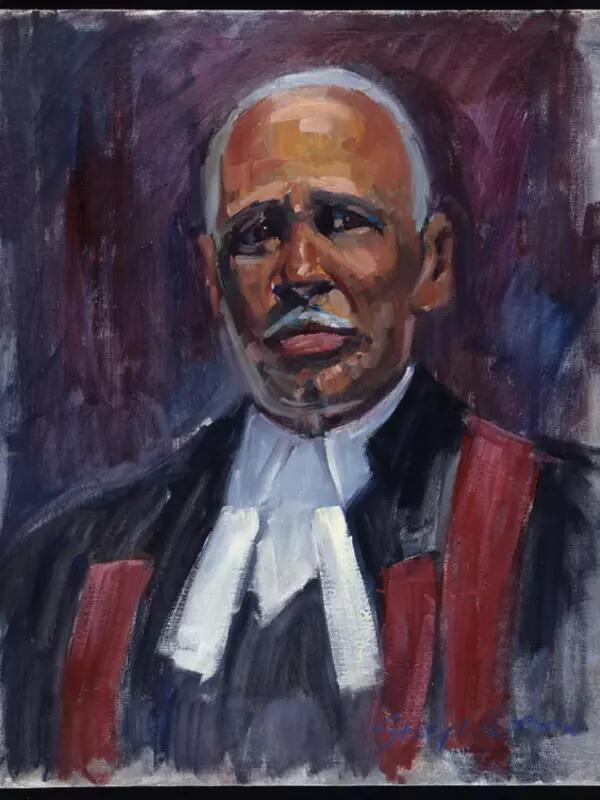
Stanley G. Grizzle
Born in 1918 in Toronto, civil rights and labour union activist Stanley Grizzle went on to become a citizenship judge and political candidate.
While working as a porter, Grizzle founded the Railway Porter’s Trade Union Council and served as President of the Toronto Canadian Pacific Railroad (CPR) Division of the Brotherhood of Sleeping Car Porters from 1946 to 1962.
In 1959, Grizzle was one of the first Black Canadian candidates to run for election to the Legislative Assembly of Ontario. The following year, he was appointed an Officer of the Ontario Labour Relations Board, becoming the first Black Canadian to hold a position at this level of provincial government. In 1978, he was appointed as a Citizenship Judge—another first for a Black Canadian.
In recognition of his civil rights work, he was awarded the Order of Ontario in 1990 and again in 1995.
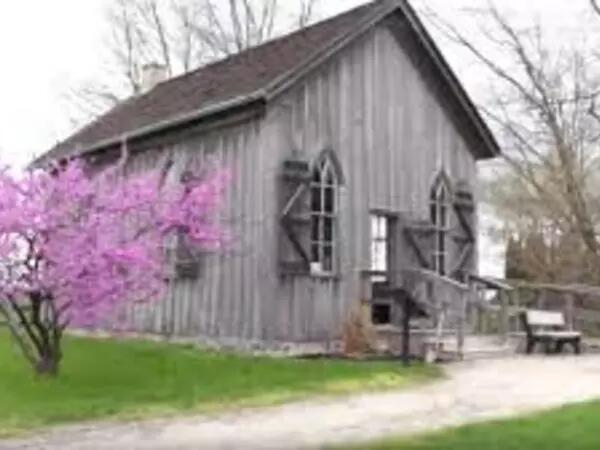
Uncle Tom's Cabin
In January 2019, the Ontario Black History Society gave Uncle Tom’s Cabin in Dresden (in the Municipality of Chatham-Kent) the Harriet Tubman Award for ‘black history preservation, programming and historical site stewardship’.
Reverend Josiah Henson, who was born a slave in the United States and escaped to Canada, helped found Uncle Tom's Cabin Historic Site in 1841. The museum preserves the settlement where Henson and his wife lived.
Uncle Tom’s Cabin is managed by the Ontario Heritage Trust. AMAPCEO member and museum curator, Steven Cook, said the site is visited by thousands of people from all over the world.
On February 3, the museum was honoured to host a visit by U.S. Consul General Greg Stanford who toured the newly unveiled exhibition, “I’ll Use My Freedom Well”.
TVO is airing a new documentary called Josiah by filmmaker Jared Brock, and narrated by Danny Glover. “It’s a fresh perspective on the remarkable contributions of one man to the rich African Canadian culture here in Ontario”, said Cook. Watch the video on the TVO website.
You can read more about Uncle Tom’s Cabin on the Ontario Heritage Trust website.
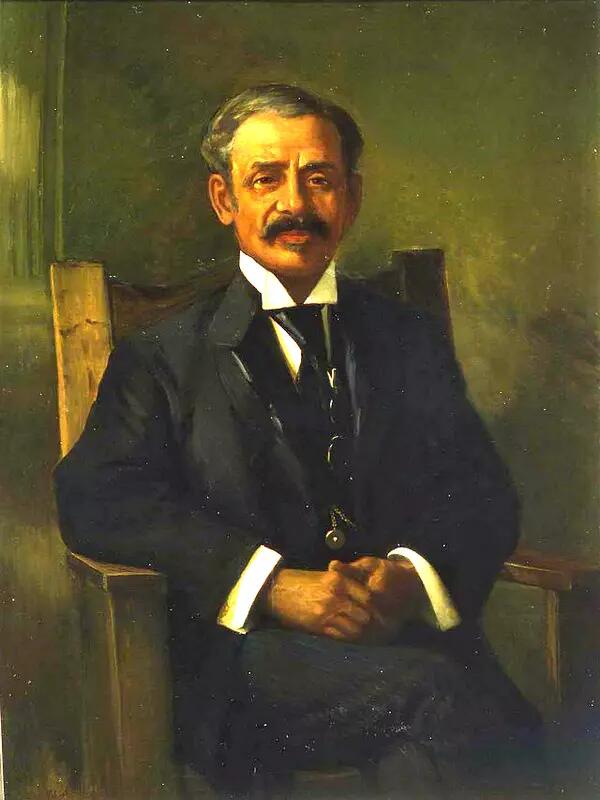
William Peyton Hubbard
Born in 1842, William Peyton Hubbard made history when he was elected as a City of Toronto alderman (city councillor) in 1894—the first man of African descent elected to public office in a major Canadian city. Among his many accomplishments, he partnered with Sir Adam Beck to advocate for a publicly-owned provincial hydro system and led the campaign to create Toronto Hydro.
Hubbard’s great-granddaughter, Lorraine Hubbard, was a founding member of the Ontario Black History Society in the 1970s.
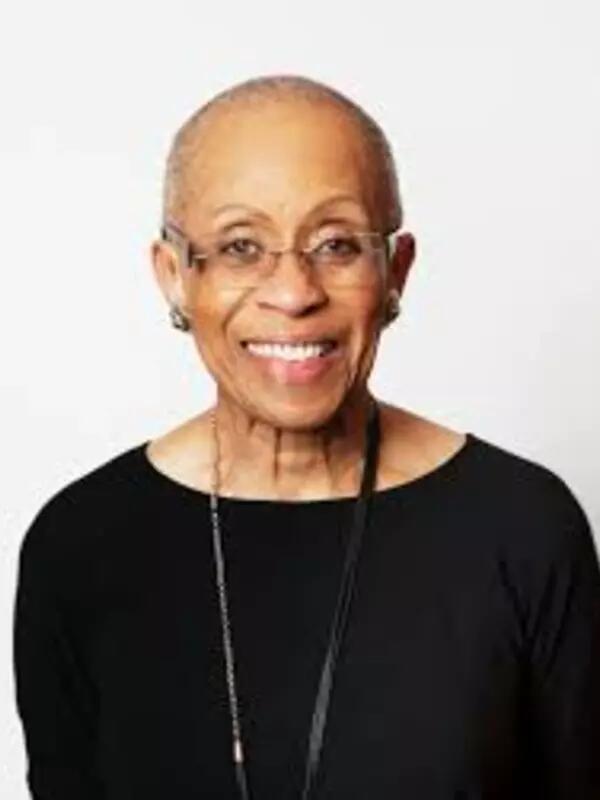
Zanana Akande
Zanana Akande became Canada’s first black female cabinet minister in Bob Rae’s Ontario NDP government in 1990 where she helped pass the province’s first Employment Equity Legislation. Prior to her work in government, she worked for many years as a teacher and principal.
As minister of community and social services, Akande oversaw an increase in food bank funding and welfare benefits to Ontarians at the lowest income level, raised the social assistance rate to seven per cent from five per cent, increased the shelter allowance to 10 per cent from five per cent, and was responsible for the design and implementation of the Jobs Ontario Youth program.
Her role also led to the creation of the Ontario Anti-Racism Secretariat and the province's first mandatory employment-equity legislation, which would institutionalize rights for women in the workplace.
In 2018, Akande received the YWCA Toronto Women of Distinction Award , honouring her many years of political service and received a key to the city from Mayor John Tory for her work in fighting for equality and improving the social, economic, cultural and political status of women.
Akande is now retired from public service, but is still engaged in community advocacy.
(Zanana Akande’s history referenced from CBC and Toronto Star.)